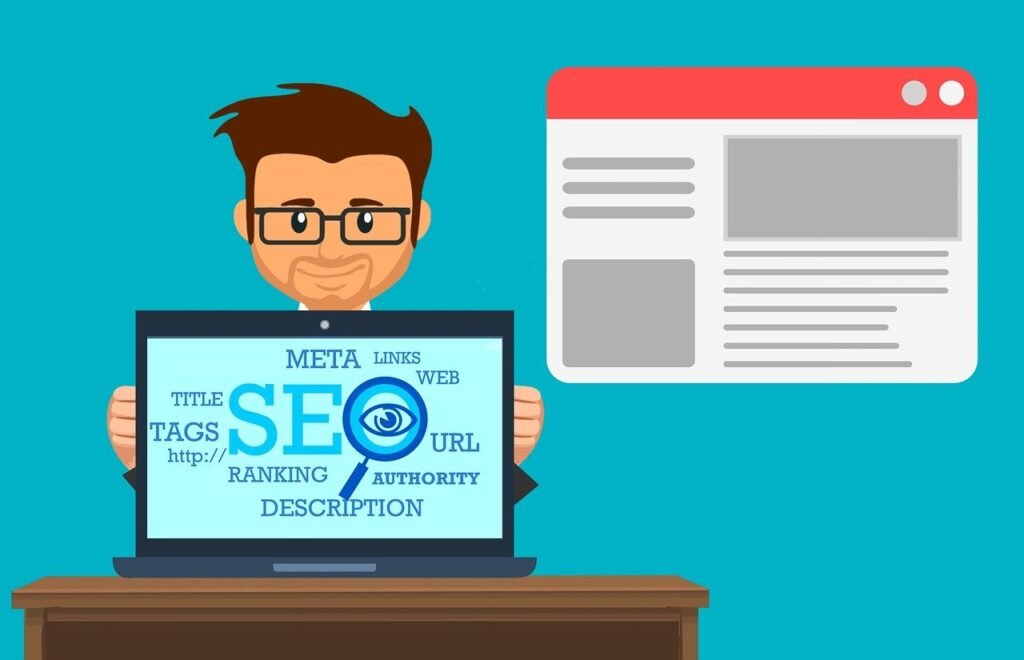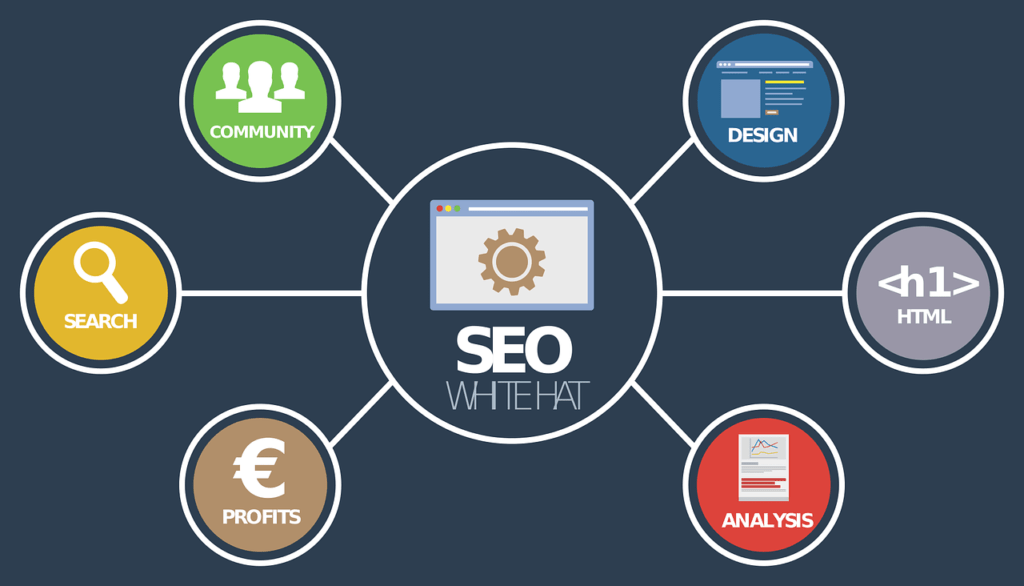Introduction
The e-commerce landscape has exploded in recent years. Gone are the days of brick-and-mortar dominance; today, savvy shoppers flock to online stores for convenience, competitive prices, and vast product selections. But simply setting up an online store isn’t enough. In this crowded digital marketplace, visibility is king. This is where Search Engine Optimization (SEO) comes in as your secret weapon.
What is SEO and Why Does it Matter for E-commerce?
Get rock-solid web hosting with Hostinger! Enjoy 70% off, blazing speeds, and the reliability you need. Use our referral link to get your deal!
Think of SEO as the science of getting your online store noticed by the right people, at the right time. In simpler terms, it’s a set of strategies to improve your website’s ranking in search results like Google, Bing, and Yahoo. Why is this crucial? Because studies show that the vast majority of online shoppers never venture past the first page of search results. If your store isn’t there, it might as well be invisible.
SEO revolves around keywords. These are the words and phrases people type into search engines when looking for products or services. The goal of SEO is to identify the keywords most relevant to your business and optimize your website’s content and structure so that it ranks highly when those keywords are searched.
Imagine you sell handmade leather wallets. Ideally, you want your website to appear at the top of the search results when someone types in “genuine leather wallets” or “unique men’s wallets.” Effective SEO makes this a reality.
The Benefits of SEO: More Than Just Traffic
Sure, SEO helps drive traffic to your website, but its benefits go far beyond just attracting more visitors. Here’s how a strong SEO strategy fuels e-commerce success:
- Quality Traffic: SEO attracts the right kind of visitors – potential customers actively searching for products you offer. This targeted traffic is more likely to convert into sales compared to random internet users who stumble upon your site.
- Enhanced User Experience: SEO best practices often improve the overall user experience. A well-structured website with clear categories and relevant content is easier for both users and search engines to navigate.
- Brand Credibility: Websites that rank high in search results are often perceived as more trustworthy and credible by users. A strong SEO strategy can significantly enhance your brand image and reputation, leading to increased customer confidence.
The SEO Toolkit: Essential Strategies for E-commerce
So, how do you unlock the power of SEO for your e-commerce business? Here’s a look at some key strategies:
1. Keyword Research: The Foundation of Success
SEO starts with understanding what people are searching for. Keyword research involves identifying the most relevant and commonly searched words and phrases related to your products or services. Tools like Google Keyword Planner or Ahrefs can be helpful in this process. Once you have a list of relevant keywords, strategically weave them into your website content, meta tags, and product descriptions.
Pro Tip: Don’t just stuff keywords into your content – focus on creating valuable, informative content that naturally incorporates them.
2. Content is King (and Queen): Engaging Content that Converts
High-quality, engaging content is the cornerstone of a successful SEO strategy. Informative blog posts, engaging product descriptions, and helpful customer guides not only keep visitors on your site longer but also provide valuable information that establishes you as an authority in your niche.
3. Technical SEO: Fine-Tuning the Backstage
Beyond content, technical SEO involves optimizing the technical aspects of your website to make it search engine friendly. This includes:
- Mobile Optimization: With the rise of mobile shopping, ensuring your website displays perfectly on all devices is crucial.
- Fast Loading Speeds: Nobody likes a slow website. Optimize your images and code to ensure your site loads quickly on any device.
- Clear URL Structure: Descriptive URLs with relevant keywords help search engines understand your content and improve user experience.
4. On-Page Optimization: Sending the Right Signals
On-page SEO focuses on optimizing individual pages on your website to rank higher and attract relevant traffic. This includes:
- Strategic Internal Linking: Link relevant pages on your website to each other. This helps search engines understand the structure of your site and improves user navigation.
- Image Optimization: Don’t forget your images! Include descriptive alt text that tells search engines what the image is about.
- Meta Tags and Descriptions: These provide a summary of your page’s content to search engines. Optimize them with relevant keywords to improve rankings.
5. Off-Page SEO: Building Authority Beyond Your Website
While on-page SEO focuses on your website itself, off-page SEO involves building your website’s authority and credibility outside your domain. Here’s how:
- Backlinks: Backlinks are links from other websites to your own. They act as “votes of confidence” from other sites, indicating the value of your content. Search engines consider websites with many high-quality backlinks to be more authoritative and trustworthy, leading to better rankings. There are many ways to gain backlinks, like creating shareable content, guest blogging, and participating in industry forums.
- Social Media Power: Social media is a fantastic tool for building brand awareness and driving traffic to your e-commerce site. Share valuable content, engage with your followers, and use relevant hashtags to increase reach. While not directly affecting your ranking, strong social media engagement can drive traffic and generate buzz that indirectly benefits your SEO over time.
6. Local SEO: Get Found in Your Area
If your e-commerce store serves a specific geographic area or has a physical store location, optimizing for local search is key. This means ensuring your NAP (Name, Address, Phone number) is accurate and consistent across online directories, claiming your Google My Business listing, and getting listed in local directories.
Pro Tip: Encourage customer reviews on platforms like Google and Yelp. Positive reviews not only influence purchase decisions but can also improve your local SEO ranking!
7. SEO Analytics: The Key to Continuous Improvement
SEO is an ongoing journey, not a one-time fix. Regularly monitoring your analytics is essential for understanding your website’s performance, what’s working, and where you can do better. Look at things like:
- Organic Traffic: Monitor how many users are visiting your site from search engines.
- Keyword Rankings: Track where your website ranks for the keywords you’re targeting.
- Bounce Rate: Do visitors leave quickly? This might indicate your content could be improved or that your site isn’t user-friendly.
- Conversion Rate: Are you turning that hard-earned traffic into sales?
This data allows you to fine-tune your SEO strategy for even better results!
The Future of E-commerce SEO: A Look Ahead
The SEO landscape is constantly evolving, adapting alongside search engine algorithms and user expectations. Here are a few trends likely to shape the future of e-commerce SEO:
- User Experience First: Google and other search engines are prioritizing websites that provide an outstanding user experience. Your SEO should aim for the same goal!
- Voice Search: As voice search with devices like Alexa and Google Home becomes more popular, optimizing your content for conversational keywords will be important.
- Artificial Intelligence: AI is already shaping search engines. Understanding how to leverage AI tools will be key for future SEO success.
Conclusion: SEO is Your Investment, Not An Expense
Succeeding in the competitive world of e-commerce requires a strong SEO foundation. With effective strategies, ongoing analysis, and adaptability, you can reap significant rewards. SEO should be seen as an investment in your business’s future. While results take time, the long-term benefits of increased visibility, improved user experience, higher conversion rates, and a thriving online presence make SEO an investment that will pay dividends for years to come.









